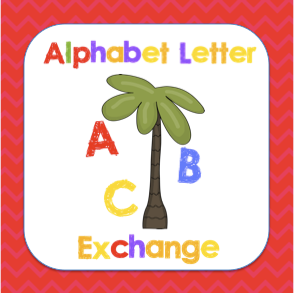When I first started teaching twenty-two years ago there was not much guidance. We didn't have a curriculum or standards or any real guidelines. We did our own thing. We worked on colours, letters and shapes. Played with play-dough and in the sand and learned to line-up at the door and put up our hand to ask a question.
Fast forward 22 years and today's classroom is totally different. We still play with play-dough and in the sand and learn to line-up and put up our hand but most children are expected to know their colours and shapes and all the alphabet coming into kindergarten. The emphasis is on reading and writing and we now have high standards to meet (whether it's Common Core or Ontario's Kindergarten Program expectations). Most children have already had school experience in day cares and pre-school centres. Here in Ontario children can start junior kindergarten at the age of three (they must be 4 by Dec 31 of that year).
I've talked a little in the past about my class. All the children I teach have either a physical disability or a speech disability. Some have both. How do I enable them to meet the high standards that have been placed on them, and on us as teachers.
I do, and will have, children in my class that will need an alternative program. Something that differs from the kindergarten program because they are not ready or able to meet those requirements. They will be on an alternative program that will work on goals that are geared to their needs. But what of my other students?
When you see a child for the first time, do you know what skills they have? Can you tell just by looking at them? Do you have a preconceived idea about their ability? Do you know if they can read? Or have the ability to learn how to read? What if the child that comes into your class can't walk? Or can't talk? Or can't hold anything? What if they couldn't do any of those things? Would that alter your conception of their ability?
Does the inability to hold a pencil mean you can't write? Does the inability to speak mean that you can't read? What if you can't talk, walk and have little to no fine motor skills? Would you assume that child would or should be illiterate? Would you assume they had the
ability to learn how to read? Or would you assume that there wasn't any point?
When a child enters my class and I see them for the first time, I DO have a preconceived idea about their ability. I BELIEVE they have the ABILITY to LEARN. And I believe they have the ABILITY to learn how to read regardless of the outward appearance of the child.
Now how you go about it, is a different matter. And I don't know that I have any of the answers. When a child can't say a word or sound back to you, how do you know that they know it? How do I prove that they can read and comprehend stories that they read and are read to them? These are all questions that I want to find answers to.
Over the past few years I've concentrated heavily on sight words. This is the easiest thing to test. If you give a child a few options, can they point or look towards the word you asked for? This is an easy way to check on sight word recognition. Building up a sight word vocabulary is important but it's only part of the puzzle.
How do we work on phonetic skills with children who can't produce the sounds? How do we test for understanding after listening to a story when the child cannot tell us? I'm planning on working on these two question throughout the next school year.
Since my students are very young, many have just started using augmentative communication systems. I'm hoping to expand on this type of system in order for them to be able to prove comprehension using communication boards that are geared to the books that I'm working on.
I still have a month before I return to school. I'm planning on spending that time getting ready for my first theme of the year. Pets. I want to spend some time working on making meaningful activities that will enable me to test comprehension, sight words and letter knowledge. I want to be able to produce solid evidence and data to prove that what I'm doing is working. That you can't judge a book by its cover.
Do you work with children with severe speech and language impairments or with no speech at all? I would love to hear from you. Do you have questions you are wondering about? Do you have the answers? Are there resources you wish you had? I would love to hear from you.
I hope that you will follow me in my journey this year as I post my thoughts on this process. I'm hoping to share some resources that I make to help me in journey and I hope that you will find them useful too.



































































